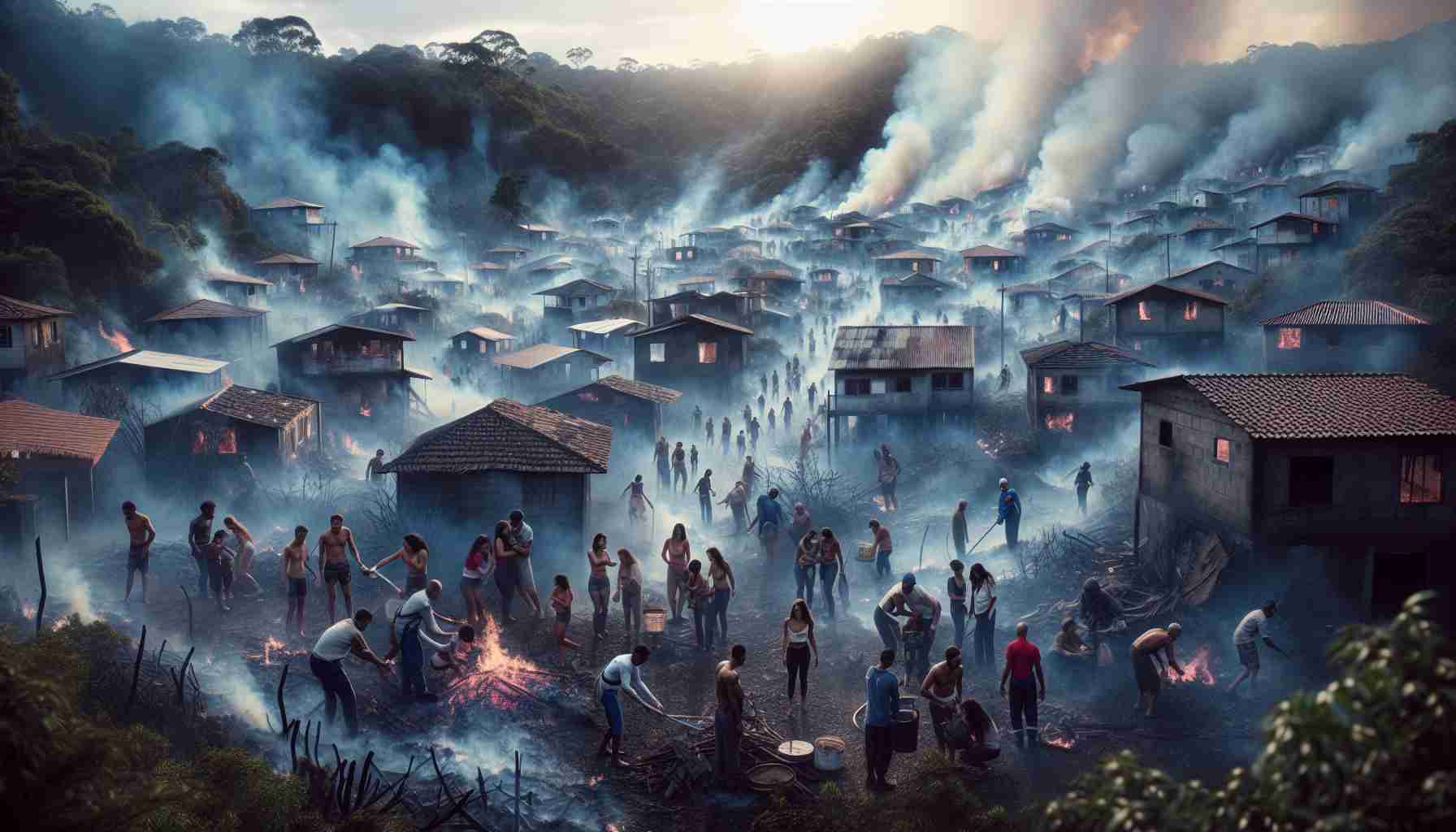Residents in various parts of Brazil are facing a dire crisis as wildfires ravage the region, enveloping vast areas in thick, toxic smoke. The impact is not just environmental but deeply personal, affecting the health and livelihoods of those in the midst of this catastrophe.
Civil defense authorities are urging residents to remain indoors and stay hydrated amidst dangerously high levels of smoke. Alarmingly, this year has seen an 83% increase in fire spots across the rainforest compared to the same period last year, exacerbating the ongoing issue. Essential workers, such as street vendors and garbage collectors, are enduring these conditions daily, facing health risks and discomfort.
Authorities are raising concerns over the severe health risks posed by the wildfires. Jesem Orellana, an epidemiologist, highlights the increased health issues faced by those working outdoors due to inhaling dangerous particles. The smoke is not only taking a toll physically but also psychologically, causing anxiety and disrupting sleep among residents.
In cities like Manaus, the situation is worsening, with the “smoke of death” arriving earlier than usual, extending the period of exposure to hazardous air quality. The impacts are far-reaching, affecting not only health but also disrupting local economies and daily activities like transportation and recreation.
As the fires continue to rage on, communities are left grappling with a crisis that shows no signs of abating, underscoring the urgent need for support and solutions to address the escalating devastation.
Communities Reeling Under Ongoing Wildfires in Brazil: Uncovering Additional Dimensions of the Crisis
The devastating wildfires in Brazil are not only wreaking havoc on the environment and public health but are also posing significant challenges on multiple fronts that demand attention and action. Amidst the turmoil, several critical questions come to the forefront, shedding light on the complexities of the situation and the urgent need for comprehensive solutions.
Key Questions and Responses:
1. What are the underlying causes contributing to the surge in wildfires in Brazil?
An important factor fueling the wildfires is deforestation, driven by activities such as logging, agriculture expansion, and land clearing. Additionally, climate change has exacerbated dry conditions, creating a tinderbox environment susceptible to uncontrolled fires.
2. How are indigenous communities in Brazil being impacted by the wildfires?
Indigenous populations residing in the Amazon rainforest face disproportionate risks and challenges due to the destruction of their territories and vital resources. The loss of biodiversity and traditional knowledge further compounds their vulnerability.
3. What long-term consequences can be expected from the ongoing ecological devastation?
The widespread destruction of ecosystems not only threatens biodiversity but also has far-reaching implications for climate stability, rainfall patterns, and the global carbon cycle. The loss of critical habitats can lead to cascading effects on both local and global scales.
Challenges and Controversies:
One of the key challenges in the response to the wildfires is the coordination of efforts among various stakeholders, including government agencies, NGOs, and local communities. Disagreements over land use policies, resource allocation, and firefighting strategies can hinder effective mitigation and response measures.
Moreover, there are controversies surrounding the role of commercial interests, illegal activities, and political influence in exacerbating the wildfire crisis. Addressing these underlying issues requires transparency, accountability, and concerted efforts to combat corruption and environmental degradation.
Advantages and Disadvantages:
On the one hand, the heightened awareness generated by the wildfires has brought global attention to the urgent need for conservation and sustainable environmental practices. This increased awareness can spur initiatives for reforestation, wildlife protection, and community resilience building.
However, the disadvantages are profound, encompassing loss of lives, biodiversity, livelihoods, and cultural heritage. The socio-economic impacts of the wildfires can have long-lasting repercussions, affecting vulnerable populations and exacerbating inequalities within society.
To delve deeper into the ongoing crisis and explore avenues for meaningful action, it is essential to stay informed and engaged with reputable sources. Organizations such as Greenpeace and WWF provide valuable insights and resources for understanding the interconnected challenges facing communities grappling with the ravages of wildfires in Brazil.


